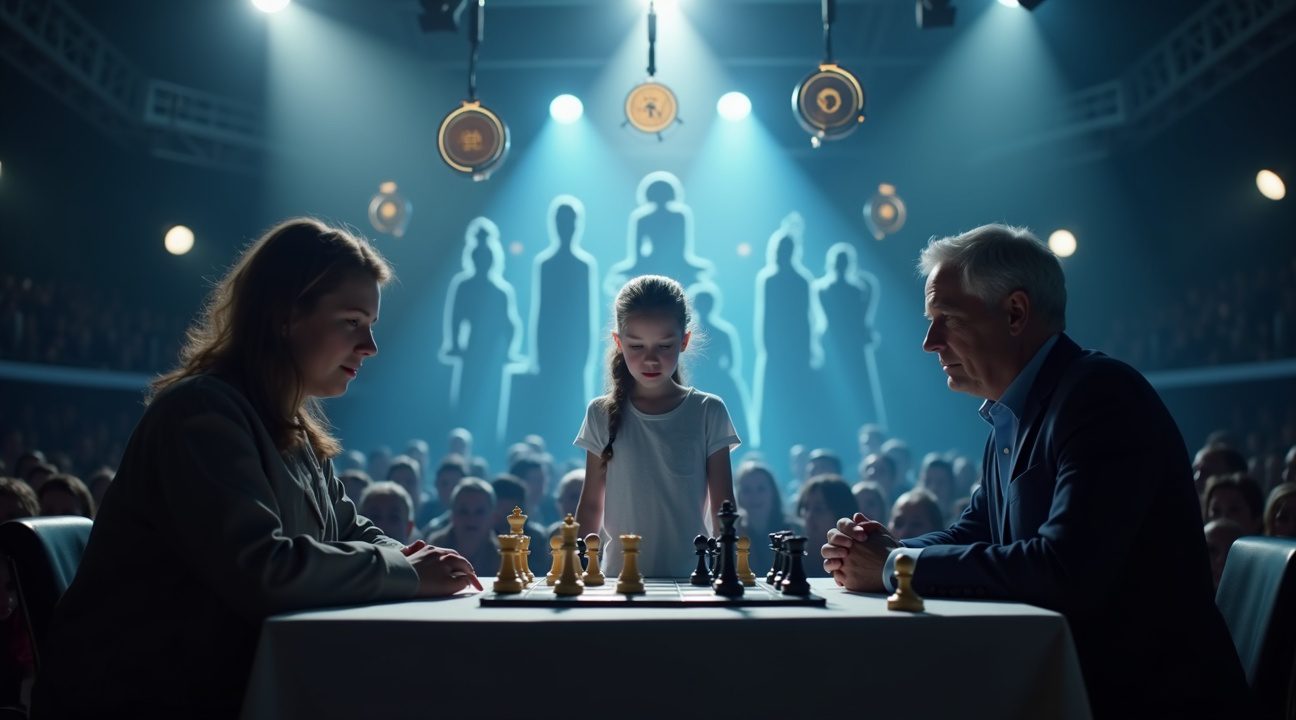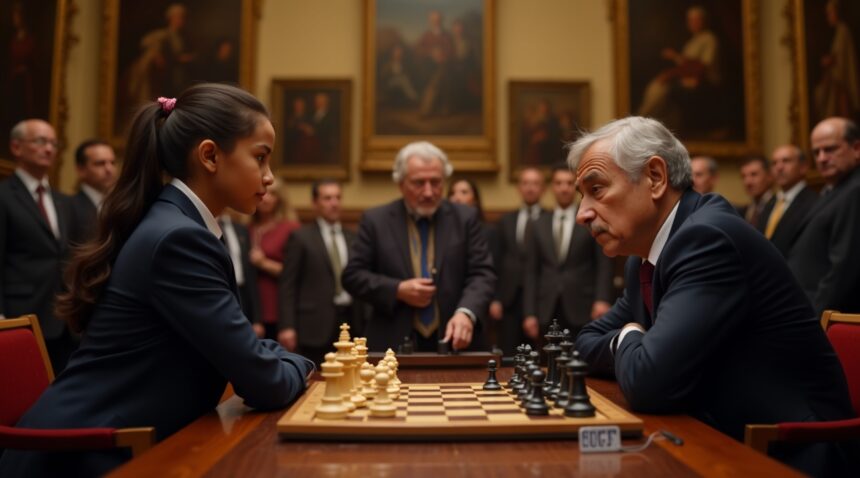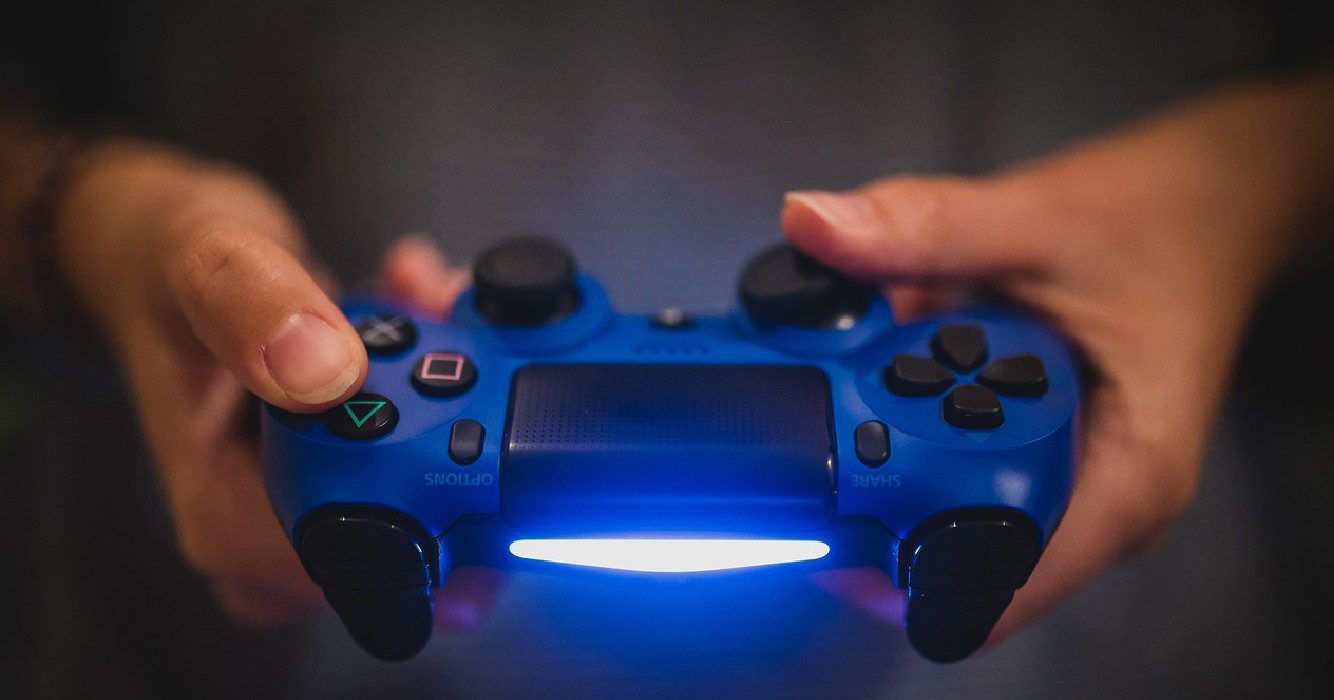Bodhana Sivanandan carved her name into chess history at the 2025 British Chess Championships by defeating Grandmaster Peter Wells at just 10 years, 5 months, and 3 days old.
Bodhana Sivanandan Makes History
This remarkable victory makes Bodhana the youngest female player ever to beat a grandmaster in official competition. Her win shattered the previous record held by Carissa Yip by nearly six months. Perhaps even more impressively, the triumph secured her third Woman International Master (WIM) norm, elevating her to the youngest person ever to achieve this prestigious title.
A Historic Moment Against a Seasoned Grandmaster
In a stunning game against 60-year-old Grandmaster Peter Wells at the British Chess Championships, Bodhana showcased not just bravery, but elite skill. This match, officially recorded by FIDE, guarantees her a permanent place in chess history.
Key Takeaways
- Bodhana broke the previous record for the youngest female to defeat a grandmaster, accomplishing this feat nearly six months earlier than Carissa Yip.
- Her victory was officially documented by FIDE, adding credibility to her unprecedented accomplishment.
- She secured her third and final WIM norm with this win, making her the youngest player ever to qualify for the Woman International Master title.
- Her journey began during the COVID-19 pandemic, when her parents bought her a chess set at the age of five — a simple gift that launched a formidable chess career.
- Her aspirations go far beyond this milestone: Bodhana is aiming for Grandmaster status and dreams of competing for the World Championship, serving as an inspiration to a new generation of young female chess players around the world.
Historic Achievement at 2025 British Chess Championships Breaks Multiple Records
Bodhana Sivanandan etched her name into chess history on August 10, 2025, when she defeated Grandmaster Peter Wells in the final round of the British Chess Championships in Liverpool, England. At just 10 years, 5 months, and 3 days old, she became the youngest female chess player ever to defeat a grandmaster in an officially recorded match.
The International Chess Federation (FIDE) officially documented this groundbreaking achievement, cementing Bodhana’s place in competitive chess annals. Her opponent, 60-year-old Grandmaster Peter Wells, represented a formidable challenge with decades of experience spanning the chess world. Despite the significant age gap and experience differential, Bodhana demonstrated tactical brilliance that left spectators and fellow competitors amazed.
Tournament Performance and Career Milestone
Bodhana’s performance throughout the championship proved equally impressive beyond her historic victory. She finished the tournament with a respectable score of 5 out of 9 points, showcasing consistent play against elite competition. This performance earned her 24 valuable rating points, further strengthening her position in competitive rankings.
Most significantly, this tournament secured her third and final Woman International Master (WIM) norm, completing the requirements for this prestigious title. Achieving all three WIM norms at such a young age demonstrates exceptional skill development and competitive readiness. Each norm requires specific performance standards against rated opponents, making this accomplishment particularly noteworthy for someone who hasn’t yet reached her eleventh birthday.
Her victory against Wells represents more than just a single game triumph. Chess prodigies often face intense pressure to perform against seasoned masters, yet Bodhana handled the spotlight with remarkable composure. The match highlighted her growing reputation as a rising star in competitive chess circles, attracting attention from coaches, sponsors, and game enthusiasts worldwide.
This historic achievement positions Bodhana among an elite group of young chess talents who’ve challenged conventional expectations about age and competitive success. Her performance at the British Chess Championships signals the emergence of a new generation of players who combine natural talent with intensive training methods. The chess community now watches closely as she continues developing her skills and competing against increasingly challenging opponents.
The record-breaking nature of her victory extends beyond personal achievement, inspiring young female chess players globally. Her success demonstrates that age barriers can be overcome through dedication, strategic thinking, and competitive courage.
Shattering Previous Records and Earning Elite Chess Titles
Bodhana Sivanandan’s remarkable victory against a grandmaster redefined what chess enthusiasts thought possible for young players. Her achievement obliterated the previous record held by American chess player Carissa Yip, who had accomplished this feat at 10 years, 11 months, and 20 days old in 2019. By reaching this milestone at just 10 years, 5 months, and 3 days old in 2025, Bodhana demonstrated that exceptional talent knows no age boundaries.
Breaking Age Barriers in Competitive Chess
The significance of Bodhana’s record extends beyond mere numbers. She claimed the title nearly six months earlier than the previous record holder, representing a substantial advancement in youth chess achievement. This gap illustrates how rapidly young players are developing their skills in today’s competitive environment, where access to advanced training methods and digital resources has accelerated learning curves significantly.
Chess professionals recognize that defeating a grandmaster requires mastery of complex strategic concepts that typically take years to develop. Young prodigies like Bodhana prove that age doesn’t necessarily correlate with chess understanding, much like how competitive gaming attracts players of all ages who demonstrate exceptional strategic thinking.
Achieving Elite International Recognition
Bodhana’s performance simultaneously earned her qualification for the Woman International Master title, making her the youngest person ever to reach this prestigious designation. The WIM title represents the second-highest ranking specifically created for women in chess, sitting just below the Woman Grandmaster level in the international hierarchy.
This achievement carries profound implications for women’s chess participation and recognition. By securing elite status at such a young age, Bodhana joins an exclusive group of players who’ve demonstrated exceptional skill under international standards. Her success mirrors breakthrough moments in other competitive fields, where young talents reshape expectations and inspire future generations of players to pursue excellence regardless of traditional limitations.
The combination of record-breaking age achievements and elite title qualification positions Bodhana as a transformative figure in chess history. Her accomplishments signal a new era where young players can compete at the highest levels, challenging established norms about when chess mastery typically develops. This shift encourages chess organizations to reconsider age-based assumptions and creates opportunities for other young talents to emerge on the international stage.

From COVID Chess Set to Championship Victory
Bodhana’s extraordinary chess career began in the most ordinary way possible during the COVID-19 pandemic when she was just five years old. Her parents purchased a simple chess set, never imagining it would launch their daughter into the elite ranks of competitive chess. Living in the London area, she initially treated the ornate pieces as playthings, moving them around the board without understanding the rules.
What started as innocent play quickly transformed into something remarkable. Bodhana’s natural curiosity about the game’s mechanics led her to ask questions about how each piece moved and why certain strategies worked better than others. Her parents noticed she wasn’t just learning the rules – she was absorbing complex patterns and developing an intuitive understanding of the game that seemed far beyond her years.
Rising Through the Ranks
Within months of learning the basic moves, Bodhana progressed from casual family games to serious tournament competition. Her rapid advancement through local chess clubs caught the attention of experienced coaches who recognized her exceptional talent. The transition from beginner to competitor happened faster than anyone expected, with Bodhana consistently outperforming players twice her age.
Tournament organizers began taking notice as this young prodigy accumulated victories against seasoned opponents. Her breakthrough moments came not through aggressive play, but through her remarkably calm approach to high-pressure situations. While other young players might become flustered under tournament conditions, Bodhana maintained a composed demeanor that impressed both opponents and spectators.
Her parents and coaches consistently describe her as modest despite her growing reputation in chess circles. This humility, combined with her brilliant tactical mind, has become her signature trait in the competitive scene. Unlike some child prodigies who might develop oversized egos, Bodhana approaches each game with respect for her opponents and genuine enthusiasm for learning.
The young chess sensation harbors ambitious dreams that extend far beyond her current achievements. She’s openly expressed her desire to earn the coveted Grandmaster title, a goal that typically requires years of dedicated study and tournament success. Even more impressively, she’s set her sights on the ultimate prize in chess – becoming a World Chess Champion.
Her journey from pandemic plaything to serious championship contender demonstrates how quickly exceptional talent can emerge when paired with genuine passion. Just as popular games can capture widespread attention, Bodhana’s story has captivated the chess community and inspired countless young players to pursue their own dreams of mastery.
Breaking Gender Barriers and Inspiring a New Generation
Bodhana Sivanandan’s remarkable victory represents far more than a single chess match. Her achievement stands as a powerful symbol of change in a sport that has historically favored male participants. I’ve observed how her success challenges long-standing perceptions about gender capabilities in competitive chess, proving that talent knows no boundaries.
Reshaping Chess Demographics
The chess landscape is experiencing a significant transformation, with young female players making unprecedented strides. Bodhana’s accomplishment motivates countless girls worldwide to pursue chess seriously, demonstrating that they can compete at the highest levels. Her story resonates particularly strongly because she represents a new generation of players who refuse to be limited by traditional expectations.
Recent years have witnessed several young prodigies achieving remarkable feats against grandmasters. Players like Keya Jha and Aswath Kaushik have also secured victories against these elite opponents, indicating a broader trend of youth excellence in competitive chess. This pattern suggests that the sport is becoming more accessible to younger players, with improved training methods and online platforms creating new opportunities for skill development.
The Unique Impact of Bodhana’s Success
While many young players have achieved impressive results, Bodhana’s combination of exceptional strategic thinking and unwavering determination sets her apart. Her approach to the game demonstrates a maturity that belies her age, inspiring both peers and adults alike. The ripple effects of her achievement extend beyond chess, influencing conversations about gender representation in competitive activities across various fields.
Chess organizations worldwide are taking notice of this demographic shift, implementing programs specifically designed to encourage female participation. These initiatives recognize that players like Bodhana serve as crucial role models, showing young girls that they can excel in traditionally male-dominated environments. Her success story provides concrete evidence that dedication and skill matter more than gender or age stereotypes.
The increasing diversity in chess participation reflects broader societal changes, with younger generations approaching competition differently than their predecessors. Modern players benefit from:
- Technology-enhanced training methods
- Global connectivity
- Early access to international competition
While some might argue that popular games have shifted attention away from traditional board games, chess continues to attract dedicated young minds seeking intellectual challenges.
Bodhana’s achievement signals a new era where chess excellence isn’t confined to specific demographics. Her victory encourages other young players to pursue their ambitions fearlessly, knowing that age and gender don’t determine one’s potential for greatness. The chess community benefits enormously from this fresh perspective and increased diversity among its ranks.
Setting Sights on World Championship Dreams
Bodhana has set her ambitions remarkably high, publicly announcing her goal to achieve both the Woman Grandmaster title and the full Grandmaster designation. Her ultimate target remains clear: competing for the World Championship title that represents the pinnacle of competitive chess achievement.
A Trajectory That Commands Attention
Chess analysts across the community track her progress with keen interest, recognizing that her rapid ascent signals potential transformative changes for the sport’s future. Her unique combination of tactical brilliance and strategic depth has already distinguished her from peers, much like how exceptional talent emerges in competitive gaming across various disciplines.
The chess establishment views Bodhana as more than a talented youngster – she represents a new generation of players who could reshape competitive chess dynamics. Her achievements at such a young age suggest she possesses the rare qualities necessary for sustained excellence at the highest levels of international competition.
Her journey resonates particularly strongly within discussions about representation and diversity in chess. Young players from underrepresented backgrounds now see tangible proof that championship-level success remains within reach, regardless of traditional barriers that may have seemed insurmountable.
The broader implications of her success extend beyond individual achievement. Chess communities worldwide recognize that her story demonstrates how dedication and natural ability can converge to produce extraordinary results. Her path from promising youngster to grandmaster-defeating prodigy illustrates the sport’s capacity for nurturing exceptional talent.
Industry observers note that her influence already extends beyond tournament results. Young chess enthusiasts increasingly cite her as inspiration for pursuing serious competitive play, creating a ripple effect that could strengthen the sport’s foundation for years to come.
Her continued development remains closely monitored by chess federations and training academies seeking to understand the factors that contribute to such rapid advancement. The methods and approaches that have shaped her playing style may inform how future champions are developed and supported.
Bodhana’s story embodies the intersection of individual ambition and broader cultural shifts within competitive chess. Her success challenges conventional expectations about timeline and achievement, demonstrating that extraordinary talent can emerge and flourish regardless of age or background. As she continues progressing through competitive ranks, her journey serves as a powerful reminder that chess remains a sport where merit and determination can overcome seemingly impossible odds.

The Match Details and Competition Context
The historic encounter unfolded during the final round of the 2025 British Chess Championships, where chess elite gathered to compete in one of the nation’s most prestigious tournaments. Bodhana faced off against 60-year-old Grandmaster Peter Wells, a seasoned veteran with decades of high-level competition experience under his belt.
The International Chess Federation (FIDE) officially documented this remarkable victory, cementing its place in chess history. Wells brought formidable expertise to the board, making Bodhana’s triumph even more extraordinary given the vast experience gap between the two players.
Tournament Significance and Career Impact
This victory served multiple purposes beyond the immediate thrill of defeating a grandmaster. The win formed a crucial component of Bodhana’s tournament performance, directly contributing to her securing a WIM (Women’s International Master) title norm. Such achievements at her age parallel the excitement seen in other competitive gaming environments, much like popular competitive games that capture global attention.
The 2025 British Chess Championships provided the perfect stage for this breakthrough moment. Bodhana’s performance throughout the tournament established her as an elite figure in the chess community, with this particular victory against Wells serving as the crown jewel of her campaign.
Her success extends beyond personal achievement, positioning her among the youngest and most promising talents in modern chess. The victory represents a significant step in her trajectory, demonstrating her ability to compete against seasoned professionals under tournament pressure. Such remarkable achievements in competitive environments remind enthusiasts of other impressive gaming accomplishments, including instances where rare gaming collectibles capture headlines for their extraordinary value.
The match itself showcased the unpredictable nature of chess, where preparation, tactical awareness, and mental fortitude can overcome experience differentials. Bodhana’s ability to maintain composure against such an accomplished opponent speaks to her exceptional talent and potential for future success in the chess arena.
This documented victory will likely be referenced for years to come as an example of chess’s capacity to surprise and inspire. The combination of her age, her opponent’s credentials, and the tournament setting created the perfect storm for a truly memorable chess moment that transcends typical championship coverage.
Sources:
Good Morning America: “10-year-old chess prodigy makes history with win over 60-year-old grandmaster”
ABC News: “10-year-old chess prodigy makes history with win over 60-year-old grandmaster”
CBS News: “10-year-old becomes youngest female chess player to defeat grandmaster”
Fox4 News: “10-year-old chess prodigy defeats 60-year-old grandmaster”
Chess.com: “10-Year-Old Keya Jha Defeats Grandmaster Hours After Bodhana, Sets U.S. Record”
Chess.com: “Bodhana Becomes Youngest Woman To Beat Grandmaster As Adams Wins 9th British Title”


